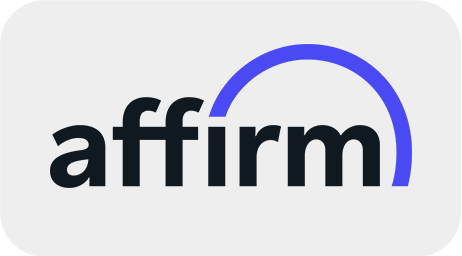Why You Should Never Ignore a Fluid Leak Under Your Car
Discovering a puddle beneath your parked vehicle can be concerning—and for good reason. Here in Astoria, where our damp climate can sometimes mask small leaks on wet pavement, it's especially important to stay vigilant about fluid leaks. At PNW Automotive, we've seen how even minor leaks can develop into major problems when left unchecked, particularly in our coastal environment where salt air and humidity can accelerate corrosion around leak points.
The Different Types of Fluid Leaks and What They Mean
Not all automotive leaks are created equal. The color, consistency, and location of the leak can tell you a lot about what's happening with your vehicle:
Engine Oil Leaks
What it looks like: Light to dark brown or black, sometimes with a rainbow sheen. The consistency is slick and can range from thin to syrupy depending on age.
Danger level: Moderate to high, depending on the rate of leakage.
Why it happens in Astoria: Our coastal humidity and temperature fluctuations can accelerate the deterioration of engine gaskets and seals, especially in older vehicles. Even newer vehicles face accelerated aging from salt exposure near our waterfront areas.
Consequences of ignoring: Continued low oil levels can lead to catastrophic engine damage. What might start as a $100-200 repair for a simple gasket can quickly become a $3,000-5,000 engine replacement.
Transmission Fluid Leaks
What it looks like: Usually red or reddish-brown (darker indicates older fluid), with a thin consistency and sweet or burnt smell.
Danger level: High—transmission repairs are among the most expensive.
Why it happens in Astoria: Our hilly terrain puts extra strain on transmissions, especially when combined with wet conditions that can deteriorate external seals. The constant shifting required when navigating downtown Astoria's steep streets can increase pressure on aging transmission components.
Consequences of ignoring: Continued driving with low transmission fluid can cause overheating and complete transmission failure. Repairs often start at $2,500 and can exceed $4,000.
Coolant/Antifreeze Leaks
What it looks like: Typically green, orange, pink, or blue (depending on the type), with a sweet smell and slippery texture.
Danger level: High, especially in warmer months or on longer drives to Portland or Seattle.
Why it happens in Astoria: Even though our climate is relatively moderate, the temperature fluctuations between foggy mornings and sunny afternoons create expansion and contraction cycles that stress cooling system components.
Consequences of ignoring: Overheating, which can warp cylinder heads, blow head gaskets, or crack the engine block. What starts as a simple hose replacement can become a major repair costing thousands.
Brake Fluid Leaks
What it looks like: Clear to light amber, with a slippery feel similar to vegetable oil.
Danger level: Extremely high—brake fluid leaks compromise your ability to stop safely.
Why it happens in Astoria: Our steep hills put additional pressure on brake systems. Combined with our high humidity, which can accelerate corrosion in brake lines, Astoria drivers may experience brake fluid leaks more frequently than those in drier climates.
Consequences of ignoring: Partial or complete brake failure. On Astoria's steep hills, this could be catastrophic, potentially leading to accidents with physical injury and property damage.
Power Steering Fluid Leaks
What it looks like: Clear, red, or light brown, similar to transmission fluid but sometimes with a slightly different shade.
Danger level: Moderate, but can become serious when steering becomes difficult.
Why it happens in Astoria: Constant turning required to navigate our winding roads and tight parking along Commercial Street puts strain on power steering components.
Consequences of ignoring: Increasingly difficult steering, potential damage to the power steering pump, and eventually, complete steering system failure.
How Astoria's Climate Affects Fluid Leaks
Our unique coastal environment presents specific challenges that can both cause and mask fluid leaks:
Corrosion Acceleration
The combination of salt air, especially near the waterfront, and high humidity creates a perfect environment for accelerated corrosion of metal components, fittings, and lines that carry fluids throughout your vehicle.
Seal Deterioration
Temperature fluctuations—from cool foggy mornings to warmer afternoons—cause repeated expansion and contraction that can accelerate the aging of rubber seals and gaskets.
Leak Detection Challenges
Our frequent rain can make it difficult to notice small leaks when your vehicle is parked on wet pavement. By the time you notice them, they may have worsened significantly.
The True Cost of Ignoring Fluid Leaks
Delaying repairs for fluid leaks almost always leads to more expensive problems:
Financial Costs
- Initial repair vs. delayed repair: A simple oil pan gasket replacement might cost $150-300, while a seized engine from running low on oil could cost $3,000-5,000.
- Towing costs: If your vehicle becomes disabled on Highway 101 or one of Astoria's steep hills, emergency towing adds to your expense.
- Collateral damage: Fluids that leak onto other components can cause additional damage—for example, oil leaking onto rubber hoses can cause them to deteriorate.
Safety Concerns
- Brake failure: Particularly dangerous on Astoria's steep hills and winding coastal roads
- Fire hazards: Oil and transmission fluid leaking onto hot exhaust components can cause vehicle fires
- Steering loss: Power steering fluid leaks can result in sudden difficulty steering, dangerous at any speed
Environmental Impact
- Watershed contamination: Fluids that leak in your driveway eventually wash into Astoria's storm drains and can reach the Columbia River
- Wildlife effects: Automotive fluids are toxic to fish, birds, and other wildlife in our sensitive coastal ecosystem
- Soil contamination: Even small amounts of automotive fluids can render soil unsuitable for plant growth
What to Do If You Notice a Leak in Astoria
Immediate Steps
- Check the fluid levels in your vehicle before driving
- Place cardboard under the leak when parked to help determine the color and rate of leakage
- Take photos of the leak pattern to show your mechanic
- Note when the leak occurs—only when running, only when parked, or continuously
Professional Diagnosis
At PNW Automotive, our approach to diagnosing fluid leaks includes:
- Visual inspection with specialized lighting to trace the source of leaks
- Pressure testing of systems like cooling and brake systems to identify hidden leaks
- Dye testing for difficult-to-locate leaks, especially in cramped engine compartments
- Comprehensive evaluation of related components that might be affected by the leak
Don't Let Fluid Leaks Ruin Your Astoria Driving Experience
Fluid leaks never improve on their own and almost always worsen over time. What might be a minor repair today could develop into a major expense if neglected—not to mention the safety risks of driving with compromised vehicle systems on Astoria's challenging roads.
If you've noticed fluid under your vehicle or spotted dashboard warning lights indicating low fluid levels, contact PNW Automotive at (971) 704-5077 or visit our Astoria shop at 1050 Olney Ave. Our experienced technicians understand the unique challenges of maintaining vehicles in our coastal climate and can quickly diagnose and repair fluid leaks before they cause more serious damage.
Don't let a small puddle today become a major repair bill tomorrow—especially when driving safely through Astoria's hills and coastal roads depends on properly functioning vehicle systems.
What We Do
Our Services
North Coast’s Premier Specialists in European, Asian, & Luxury Auto Repair
AC & Heat Repair
Don’t let extreme temperatures disrupt your comfort—trust us for expert AC and heating system repairs to keep you comfortable all year long, even in cases of system failure.
Brake Repair
Stay safe on the road and ensure optimal braking performance for your European vehicle with our professional brake repair services, trusted by drivers throughout the Pacific Northwest.
Suspension Repair
Restore a smooth, controlled ride and improve handling with our specialized suspension repair and maintenance services. Whether it’s stabilizers, shocks, or struts, our trained team ensures your suspension system keeps your vehicle safe and steady on the road.
Engine Repair
Enhance peak performance and smooth operation with our engine diagnostic and repair services, tailored for European and high-performance vehicles. Our comprehensive diagnostics and precision repairs ensure your engine runs flawlessly.








